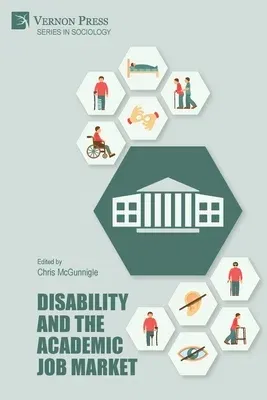Disability and the Academic Job Market examines ableist structures in
academia that inherently create obstacles to full-time employment for
people with a disability. Based on historical and contemporary
scholarship, it has been shown how disclosure of a disability can have
profound repercussions for a scholar with a disability. Scholars with a
disability are often inhibited from applying to or being promoted in
academia because of direct discrimination, negative perception towards
people with a disability, inaccessible physical and performance
conditions, and social models of disability that characterize disability
as unproductive, abnormal, and risky. While scholarship has addressed
ableism in academia, it has not strongly focused on the specific
difficulties and barriers that a person with a disability faces when
applying for a full-time academic position. This book seeks to provide a
resource that brings to light ableist conditions in the academic hiring
process through the lived experiences of scholars with a disability,
with hope to implement change in these situations.
This collection presents a combination of personal narrative and
scholarship from academics with a disability who have navigated the
academic job market, with additional contributions from non-disabled
allies who have advocated for change in academic structures. Our
collection begins by expressing the concerned experiences of students
entering the academic job market, followed by scholars who have more
fully lived through the obstacles of the academic market in both
contingent and tenure track positions. A vital focus of this collection
is on intersectionality as chapters draw from interactions between
disability and race, gender, and sexuality across international
contexts. Important topics discussed throughout the collection include
systemic ableism, disclosure, the job interview, academic workaholism,
and lack of accommodations.


